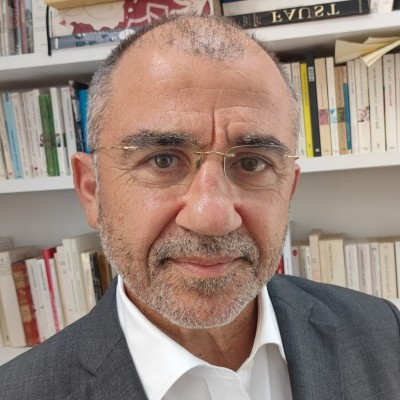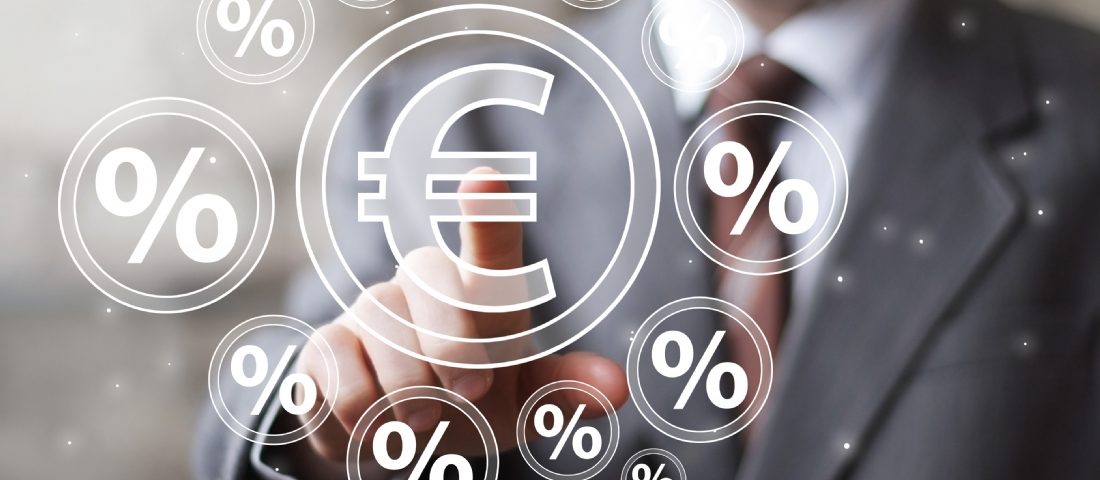Without finance pace toward progress would have been very slow
Finance allows to achieve today what it would have been done tomorrow. Then it makes a bet against future and has to deal with uncertainty and risks.
For example, a farmer has the will to acquire a steer to get more wheat from its fertile land. Then, he should wait several years, enough for saving money covering the steer price. By this time, steer price might have increased.
The farmer could also make a deal with the steer seller. He gets the steer today and pays the seller each year with the extra wheat he’ll get from his land. The seller has become a money lender.
Lending speeds economic development, it allows companies to start today enhancements of their production means. In that, it favors progress.
But lending is a bet against the future. If the borrower doesn’t get enough extra revenues, he won’t be able to fulfill his engagements. There is a counterpart risk since repayments are fixed while the future is uncertain
Rate risk would be another risk. Rate is the lender revenue. When borrowers are keen to get money, rates get high, if not, they get low. If the borrower has got a loan when rates were high, if they get low he will try to get a cheaper loan and repay the first one. Then he would have restructured his loan to limit losses.
Rates fluctuations are the main cause of asset price changes. When rates are high, borrowers limit their loans and demand for asset fall. If rates get low, borrowers are eager for loans and demand for asset increases.
Owners note that the price of their assets fluctuates even if they did not make any financial transactions.
Equities are another way to lend money to companies. Instead to get fixed payments, lenders are repaid with dividends. If years are bad, the company does not make profits and does not pay dividends. If years are good, dividends could be very high. To be compensated of the risk, lenders are granted of no limit repayments. Companies in another hand have less financial burden during bad times.
Once emitted, equities could be sold by their owners. If dividend expectations are high, higher would be equities price. So the vendor would make a profit. If not, equities price will lower and the vendor may loss his money.
All of this creates a great asset price instability. If a company dividends expectation are high, buyers borrow money and acquire more equities of that company and equity price get higher and higher, or the opposite when dividend expectations are low.
To avoid such a bubble, equities markets have been organized and have allowed forward purchase or forward sale. This means that instead of buying today a company equity which is deemed to increase, the buyer agrees today on the price of transaction which would happen later when the bet would be closed. In that way, no real transaction happens and prices would not be affected.
Options are a way to buy or to sell a forward purchase or sale agreement. Like equities, option markets have been organized too. They allow to take option on option which is the same as to bet against pure rate or index which are the growth rate of an equities basket. These kinds of bet does not affect directly option prices and allow a market buoyancy.
Then finance allows today to allocate money to projects which could sustain humanity pace toward progress. Sometimes, project selection may fail when money is allocated to buy assets which will not bring forward humanity, like land or houses. Then prices get higher without bringing value to people.
Like a lot of technology or approach, finance is not good or bad, it has a potential to bring fair advantage in speeding the pace to progress but as well may throw countries and humanity into crisis. Finance has to be tightly regulated
Finance activities are run by banks
Finance activities are run by specialized organisations because their are technical and need a high level know-how to be controlled and headed securely. This is the role of Banking sector.
Banks are managing all financial activities : lending, equity management, option management, exchange of money. Organized Financial Markets are managed by organisations in charge of Market regulation, and States monitor all activities by the mean of Central Bank and regulator bodies.
To manage efficiently lending activity, bank lend money it has not yet acquired. Otherwise each bank would have to publish the amount of available money it has to lend, and every borrower would have to chase bank with enough money for covering its request. In this context, banks without enough money would have been neglected, the activity would have not been efficient and rates would have been getting artificially high. Then demand would fall, and prices would get artificially down and this is deflation.
To make the activity smooth, then Banks lend money it does not own. This is the money creation process. As long as the loan is repaid, money is progressively destroyed since it is removed from being used on Markets. Banks are paid by interests rate. This approach is sustainable only if only if globally loans are equal to savings. Otherwise such a big amount of money increase buying demand and artificially push the prices. And this is inflation.
Then equilibrium are monitored by regulator. Banks are globally limited on the amount of loans they are allowed to do by the mean of capital freeze. Regulators force them to retain a part of their own money so they are able to cover any repayment defaults. The amount of money depends on the amount of loans and the default risk. This is the reason why banks say they manage financial risks.
To set out risks from their scope, banks have imagined securitization. They gather their loans into portfolio and transfer them to a Special Purpose Vehicle which is a tax free company or a trust. Then they sell tradable securities to investors which bear the risk against interests.
If banks are keen to remove riskier loans, bad loans, from their own portfolio, they design securitized portfolios with an attractive balance between global risk level and interest rate. Then some loans are very bad, some other are very good.
When they are not able to balance well securitized loan portfolio, they add an additional guarantee insurance to the Special Purpose Vehicle. If repayments defaults exceed an agreed limit, some investors will take over from defaulters. This is a Collateralized debt obligation (CDO).
Banks assert to investors that the probability to fall in this situation were very tiny. Yet, they could be wrong. This is what happened during subprimes crisis. Some banks accepted to play the insurer role to make securitized loans attractive. They thought like regulators that the limit would have never been reached.
They were wrong. Lehman Brothers went to bankruptcy and force investors to endorse repay defaults. Since a lot of banks misguided had invested into subprime, they lost a lot of money a so big amount that it caused a worldwide credit crunch.
Money make the game even more complex
When somebody wants to buy a good from a foreign country, he has to get foreign money to pay it. Then he goes to the exchange office and pay with its own money the value of the foreign money. Normally exchange value is fixed in the way that you buy same good in each country for the same price after money conversion. This is the purchasing power parity. In fact this is an exception.
This is due partly to disparity in production costs. For example when social costs are higher in one country than the other. This is also due to exchange value. Indeed, when there is a strong demand to a specific country money, say dollar, exchange value get higher. In fact, when a company has to pay a good in dollar, he ask for a short term loan in dollar to a Bank. As demand for loans increases, interests rate should increase as well. Since it is a specific segment of loans, banks prefer to raise money exchange rate and keep interests rate unchanged. Then only foreign agents would be impacted.
If exchange value of a money, say US dollar, increases, the money value of the buyer is lowered automatically. Then, the price of imports paid in dollar would increase for the country. Often government may ask to the central bank to buy its own money in dollars to sustain exchange value. This requires the Central Bank to keep foreign money reserves.
If the country is not able to sustain its money exchange rate, this is the devaluation. Then imports are more expensive and exports cheaper. This could make exported goods more competitive at the expense of imports. If exchange rates are high, export are expensive and imports cheaper. When exported products are far more better than competitors, exchange rate may be high. This is the case of Germany in Europe.
For a country, the total amount of money is not only the paper money, but also all short term loans and securities.
When a bank lends overseas, it has to bear the repayment default risk and the exchange value risk. In a way to be immunized from the later, it usually get an option fixing today exchange value of the money that it will get tomorrow for loan repayment.
Imbalances : inflation and deflation
The purpose of Central Banks is to fight against imbalances. When demand is high because the country economy is growing, Central Banks ease interest rates to allow everybody to get money. If demand is high because wages are high, but in counterpart, economy si stable, Central Bank would rise interests rates to slow demand and avoid inflation. In the same time rulers have to freeze wages, this is austerity.
When demand is low because wages are moderated, Central Banks have to ease interests rates to try to revive demand. As for inflation, rulers have to adjust their economic policy, otherwise, prices will get lower and lower, as the wages. This is deflation, the worst imbalance for an economy.
At the end
Finance is not an individual activity. Its main purpose is to manage a public good vital for people, countries and societies, which is the money.
Money is the mean for everybody to buy goods anywhere on earth. As goods may be bought in advance, it allows investment and development. It is necessary to make the progress happen.
Money, as public good, need to be managed. Some economists think that it is up to everybody to play its role of economic agent. This is in short the point of view of monetarists. Some other economists think money has to be regulated by the mean of Central Banks and banks regulation.

